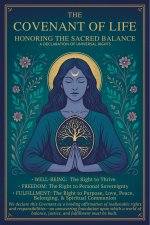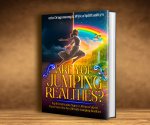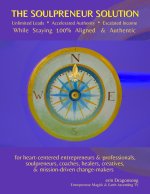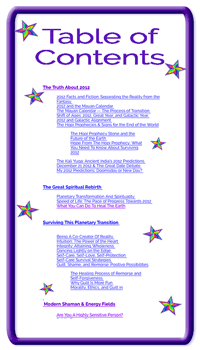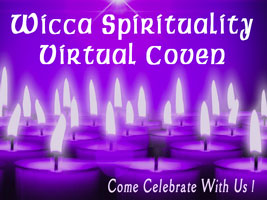Wicca Guide for the Solitary Practitioner
by Scott Cunningham — Book Review

|
|
|
|
|
- Learning to sense energy
- How to design ritual
- Laying out an altar
- Initiation and self-dedication
- Making magick with runes and other tools.
Excerpts from Wicca: A Guide for the Solitary Practitioner
...Magic isn't a means of forcing nature to do your will. This is a completely erroneous idea, fostered by the belief that magic is somehow supernatural, as if anything that exists can be outside of nature. Magic is nature. It is a harmonious movement of energies to create needed change. If you wish to practice magic, all thoughts of it being paranormal or supernatural must be forgotten. P. 6 The Goddess and the God are of nature, both the delightful and the dark. We don't worship nature as such; some Wiccans probably wouldn't even say that they worship the Goddess and God. We don't bow down to the deities; we work with Them to create a better world. This is what makes Wicca a truly participatory religion. P. 18 The circle is constructed with personal power which is felt (and visualized) as streaming from the body, through the magic knife (athame) and out into the air. When completed, the circle is a sphere of energy which encompasses the entire working area. The word circle is a misnomer; a sphere of energy is actually created. The circle simply marks the ring where the sphere touches the Earth (or floor) and continues on through it to form the other half. P. 57 It is the wise Wiccan who celebrates on the Sabbats and Esbats, for these are times of real as well as symbolic power. Part 68-- Wicca: A Guide for the Solitary Practitioner,by Scott Cunningham. Llewellyn Publications, 1999. ISBN 0-87542-118-0. (All bold text, my emphasis.)
Rating for Wicca: A Guide for the Solitary Practitioner: 4 Stars




With Brightest Blessings,
erin Dragonsong

The Spiral Dance, by Starhawk Starhawk's classic Wiccan text, The Spiral Dance, is probably the best introduction to Wicca spiritual practice you can get on paper. It's a book for the conscious, adult Wiccan... someone who wants to develop the real Craft of being a Witch. There is a ... Buy It Now
Loving the Goddess Within: Sex Magick For Women, by Nan Hawthorne Loving the Goddess Within: Sex Magick For Women reveals the sensual aspect of spiritual worship. "Love and sex are essential parts of magick...re-enactments of the Goddess's initiating and sustaining energy." The premise of Hawthorne's book is that sexuality and the passionate interplay of energies is integral to Wicca . . . Buy It Now
Power vs. Force: The Hidden Determinants of Human Behavior, by David R. Hawkins Power vs. Force explores the nature of true power, which is always of the spirit. As Hawkins demonstrates, force is only on the material level, and so is constantly needing to be justified and backed up with rhetoric. Power, on the other hand, never needs justification ... Buy It Now
Return from
Wicca: A Guide for the Solitary Practitioner
to
Silver Chalice E-Zine

